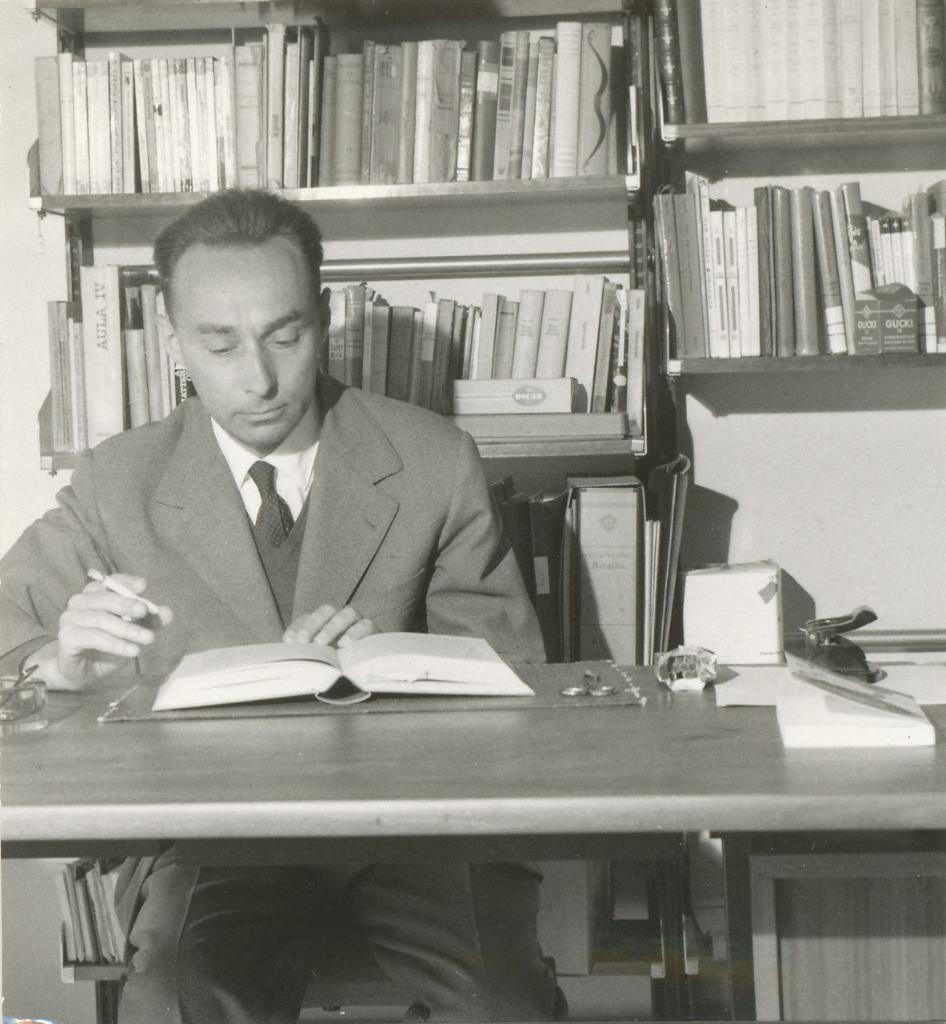
Primo Levi was born on 31 July 1919 in Corso Re Umberto, Turin, in the same apartment he would call home for his entire life, up to the day of his death on 11 April 1987. The signal exceptions to this sedentary existence were the war months he spent in 1942-43 working, hiding and (almost) fighting for the Resistance in corners of Piedmont, Lombardy and Val d’Aosta; and the 22 months he spent between Fossoli, Auschwitz and the chaos of postwar central Europe from late 1943 to late 1945. 2019 marks the centenary of his birth and, as might be expected, the occasion is being marked in a host of different ways in Italy and beyond.
In Italy, there is an official, state-sponsored Comitato nazionale per le celebrazioni del centenario della nascita di Primo Levi, co-ordinated from the Centro internazionale di studi Primo Levi in Turin, the research institute and archive set up with the support of Levi’s family and local institutions in 2008 and directed by the historian Fabio Levi. The programme organized by the Comitato / Centro is rich and deliberately eclectic, mixing academic, public and civic cultural events, with an interesting focus on performance and transmission, and an admirable intent to avoid grand ceremonials. (See the list of initiatives here.) The cycle of official celebrations opened at Fossoli, on 21 February, on the 75th anniversary of Levi’s deportation from there to Auschwitz in 1944, with a powerful set of readings from Se questo è un uomo by actor Fabrizio Gifuni, staged in one of the restored prison barracks. Later events will include a cluster of dramatized performances of Levi’s works, debates and presentations at the Turin Fiera del libro in May, a RAI documentary to be broadcast on Levi’s birthday, and a series of conferences, lectures and ceremonies planned for the autumn, in Turin, Fossoli again, and also in Rome, for the award of the Primo Levi international Prize for science and human rights, by the Italian and German associations of chemists.
Beyond the ambit of the Comitato nazionale, dozens of separate projects have proliferated all over Italy, the wider world and online, confirming Levi’s remarkable status as a presence within academia and the institutions, but also with a far wider cultural purchase. The Centro Levi is compiling a growing list of national and international events (here), which so far takes in (beyond Italy) Australia, Belguim , Canada, Denmark, Germany , Holland, Israel, Mexico, Poland, South Africa, Spain, Turkey, UK, and US. In the ambit of science, the Israel Academy of Sciences and Humanities is one of several institutions to mark jointly Levi’s centenary together with 150 years of Mendeleev’s Periodic Table. Marco Belpoliti, not only the editor of Levi’s complete works in Italian but also one of the most dynamic public intellectual voices in Italy today, has been producing a fascinating sequences of commented photographs of Levi and a mini-Dizionario Levi, both for his website Doppiozero. The Primo Levi Center in New York hosted a lecture by the essayist Pankaj Mishra and a multi-lingual reading of If This is a Man, echoing the remarkable complete reading which took place at the Royal Festival Hall in London in 2018 with readers including Auschwitz survivors, contemporary migrants, A. L. Kennedy, Tom Stoppard, Philippe Sands and Alan Rusbridger. In the UK, a graduate-organized conference on ‘Profane and Sacred Intertextualities in Primo Levi’ took place in Cambridge in March and a cycle of events ‘The Voice(s) of Primo Levi – On the Centenary of His Birth’ in Durham in May, and more is to come.
Centenaries are in some sense artificial occasions, feste comandate rather than natural moments in the reception of an author. In Levi’s case, this mass of commemorative events at least diverts our attention away from his death, which has for too long cast a disconcerting shadow over his reputation. It is perhaps best taken in conjunction with the very recent publication of the latest and possibly definitive edition of his works in Italian (ed. Marco Belpoliti, 3 vols, Turin, Einaudi, 2016-2018) and the prestige edition of his Complete Works in English (ed. Anne Goldstein, 3 vols, New York, Liveright, 2015). Taken together with the flood of scholarly work that will inevitably now follow on from these publications and centenary conversations, perhaps this will indeed be seen as a genuine watershed moment in our understanding and interpretation of Levi’s remarkable achievements.
Prof. Robert Gordon
Keywords: Primo Levi, centenary, Turin, Centro studi Primo Levi
